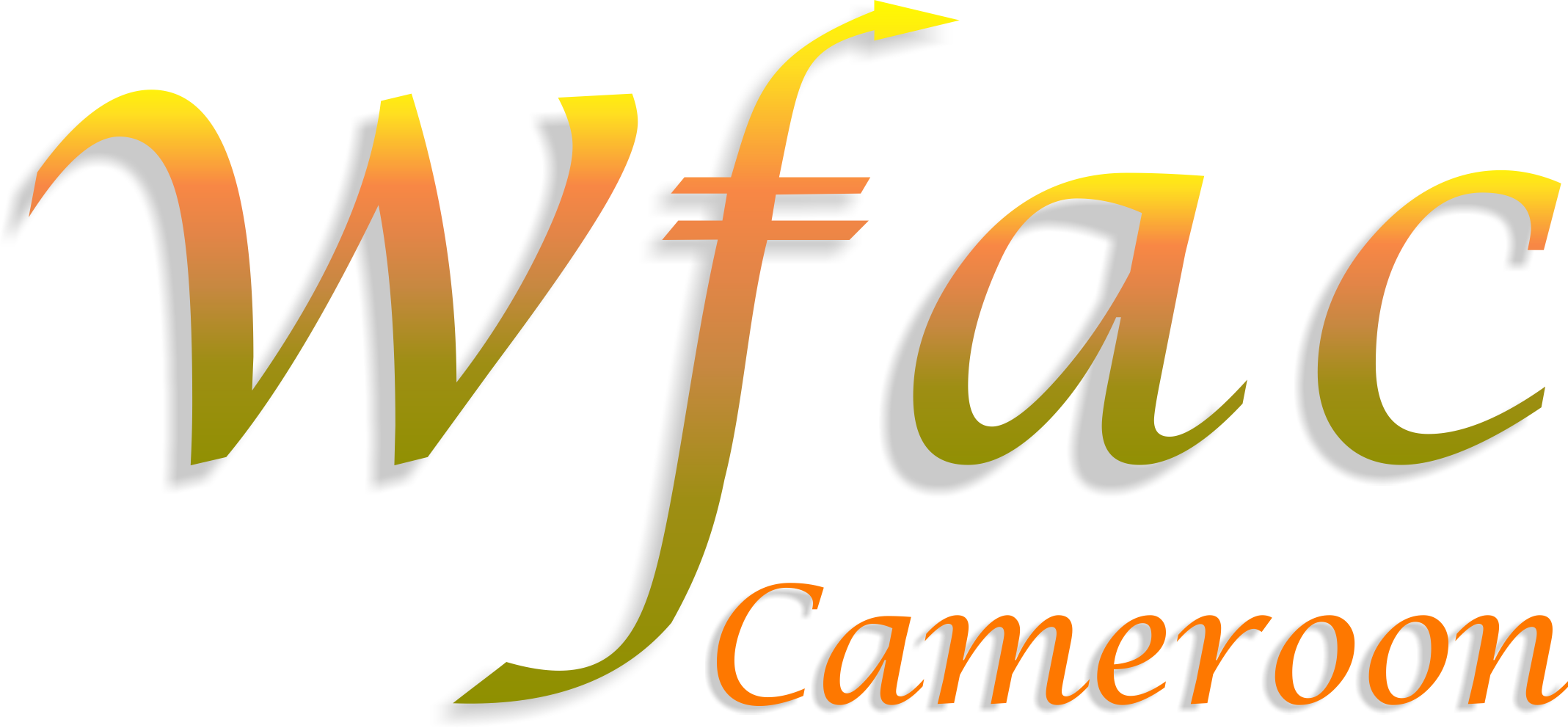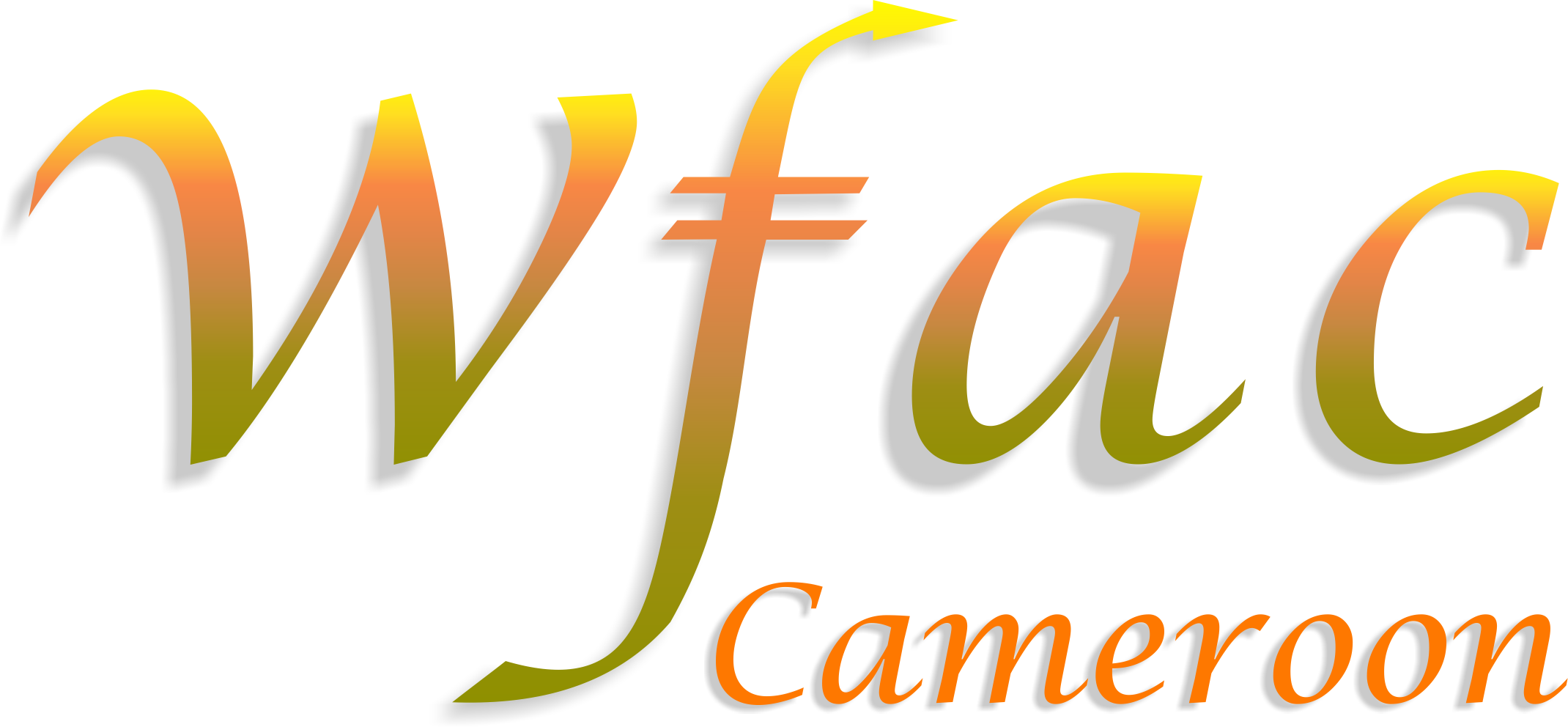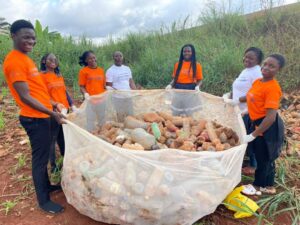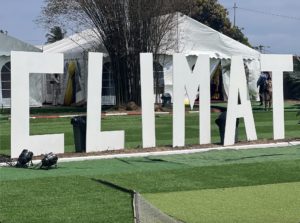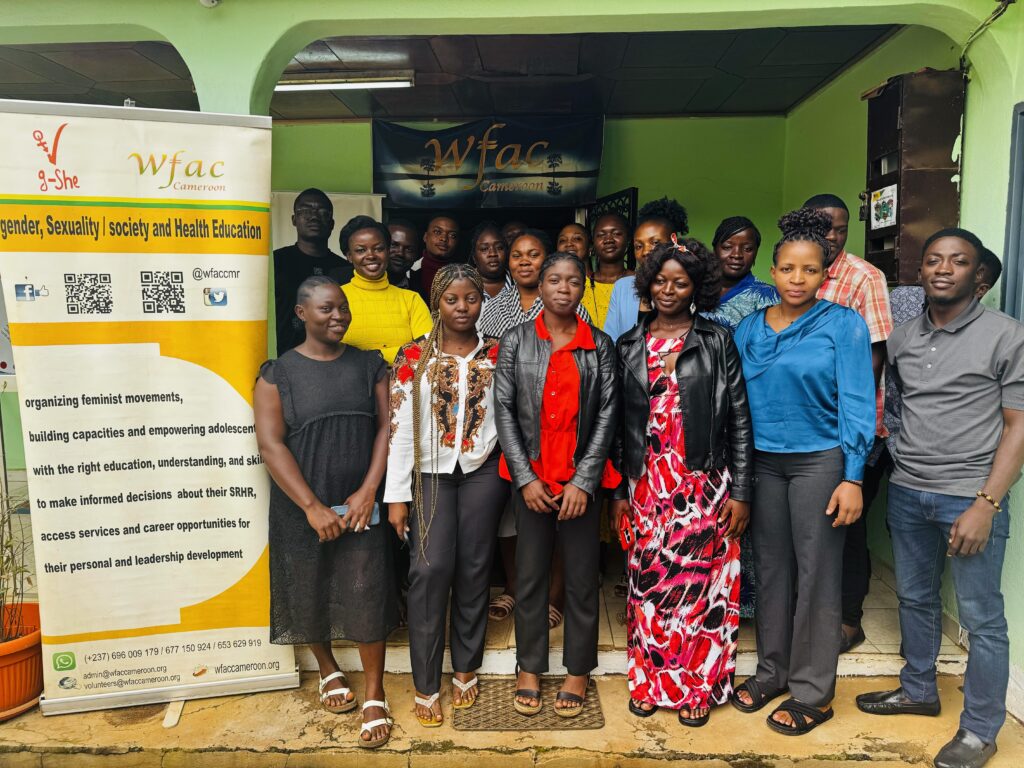
Women for a change, Cameroon as part of her core mandatory obligations towards the implementation of one of her flagship programs; the gShe, organized a two-day intensive training for facilitators and volunteers of the gShe program; to evaluate and exchange learnings while imparting them with the right information, knowledge and skills required to effectively carry out the gShe program in and out of schools for the upcoming academic year 2024/2025. The gShe being one of Wfac’s most prestigious community outreach program, seeks to impart adolescents and young people in and out of schools with the right information, knowledge and skills required to make better, informed life changing choices and decisions on and about their sexual and reproductive health and rights, build and enhance their capacities in leadership, volunteerism and community development.
The training that lasted for a cumulative four days saw and had both new and old volunteer facilitators from across three regions, including school focal persons, teachers, tech and environmental experts join the team in Yaoundé for yet another year of exchange learnings and capacity building for the gShe.
In pursuant of the day’s program, a presurvey was conducted, to evaluate and get a baseline understanding of participants knowledge around certain concepts and thematic such as gender, gender-based violence, sexuality, sexual and reproductive health and rights, the global goals for sustainable development and Beijing declaration and platform for action alongside other cross-cutting issues.
Diving into the day’s agenda proper, saw participants engage in an artistry self-introduction exercise that sought to develop their profiles and those of their fellow facilitators. The exercise had participants introduce themselves and their next neighbor, in an attempt to develop and enhance their cognitive and collaborative thinking. Moving beyond the introduction; participants were called upon to share their expectations and fears for the upcoming academic year; the challenges and opportunities that may either constrain or advance the realization of the set program goals and objectives. Participants shared their views through sticky notes that were all glued to the board and visible to everyone throughout the training. While some participants expressed their fears to be around squeezing out the two hours required weekly to carry out the gShe in schools; the school administration not giving the program the much needed and required attention, other’s expectations were to learn more from past facilitators and on the field as they are deployed. This exercise then brought the participants to what would be the final session of that day’s exchange; that was a round table with old facilitators, teachers and school focal persons; to exchange learnings and devise new opportunities for the gShe program to be effective in their respective placements.
The old facilitators shared their experiences with the new facilitators, calling on the new facilitators to find their drive and purpose in volunteerism, stay committed and grow their passion or the gShe as those will enhance their dedication and patience, tolerance and enthusiasm to remain interested and engaged in the gShe program. The exchange had the old facilitators share some of the challenges they faced throughout their time, which is likely to recur even after the many years of experience gathered; they shared the need for new facilitators to master their subject and topics, gain better understanding of their environment and teaching methods, keep students engaged through different participatory activities and games, and devise other techniques to effectively manage their classrooms. These were all new and interesting for the new facilitators who asked questions, seeking more clarity on how they can further engage and maintain the same momentum as the old facilitators, especially on issues related to classroom management and techniques of keeping students engaged and interested. Many more was shared throughout the discussion that focused on the different techniques that worked for the old facilitators, that can be adopted by the new facilitators to make their first days in class groundbreaking. The takeaway from the day’s discussion was to always master one’s subject, use a participatory approach to get students engagement and involvement in the lessons and class discussions, ice breakers and fun exercises to introduce a new topic or expand on an already existing one, and other techniques intrinsic to the facilitator.
The last day of the training saw facilitators engaged and enthusiastic about what would be a full day of exchange learning and capacity building at this year’s training. The training moderator and volunteer’s manager Emmanuel Ndabombi took participants around the room to gather a sense of feeling from the previous day, from which they immediately dived into reading the previous day’s minutes and summary report. This was immediately approved and adopted by all, and the day’s discussions went on its way thereafter.
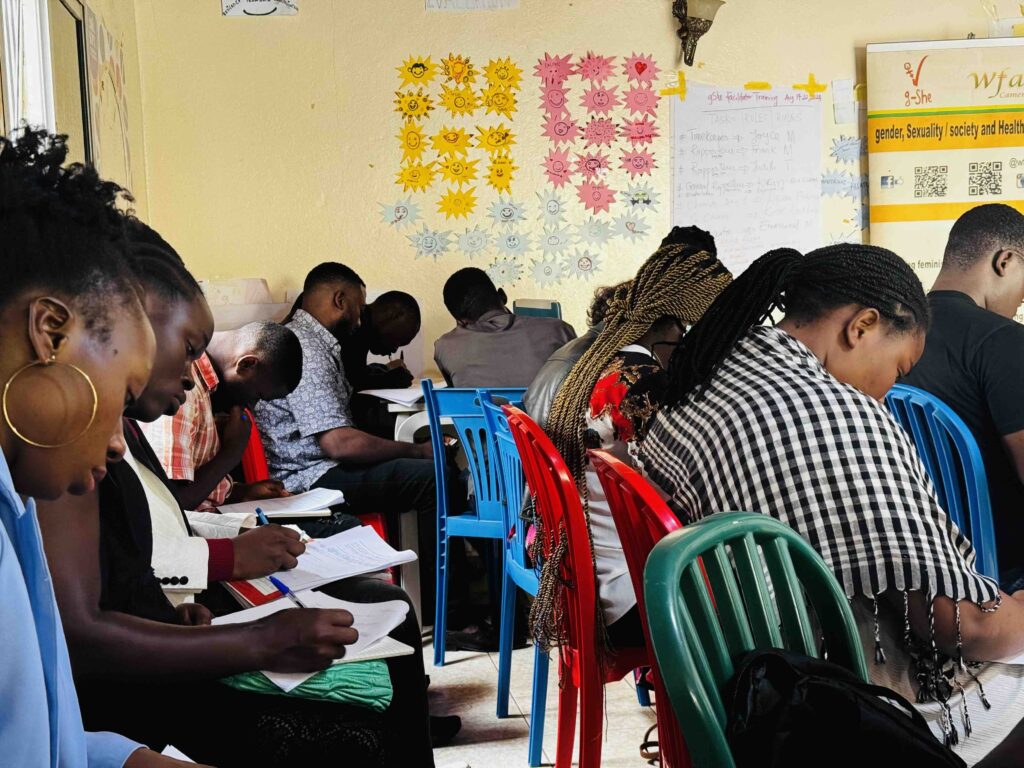
The day was divided into sessions, and the first session had the volunteer’s manager take the participants through the basic definition of concepts, from which they further shared common knowledge and understanding on the different cross cutting concepts and issues that grounds the gShe and its implementation in schools. The exchange learning session had participants share their perspectives on some of the most pertinent and recurring thematic topics were: UDHR, CSE, Gender, Sexuality, SRHR, the SGDs, The Beijing Declaration and Platform for Action, srGBV and more. It was an interesting discussion amongst the facilitators, as the training facilitator, Emmanuel Ndabombi brought facilitators to understanding the nuances in maintaining and ensuring an effective gShe program. Subsequent sessions on communications; teamwork, conflict management and volunteerism pursued as all these tried to capacitate the gShe facilitators ahead of what is expected to be a fulfilling academic year for the gShe.
In the next steps, all participants were drilled on Wfac’s commitments in commemorating international dates, how to engage the different social media platforms, navigate the online platform for the gShe, register students and take on courses/lessons just as it is when taking an in-person lesson/course. The importance, benefits and flexibility of the virtual platform and how it can also be used as a transformative tool towards advancing adolescents and young people’s sexual and reproductive health and rights, leadership and development.
As the training approached its cumulative end, it was important for a simulation exercise to be conducted by facilitators, to evaluate their understanding and comprehension of the courses and language of communication and participation, as part of a mandatory session for the training; to gain more insight on the different possible challenges that facilitators may face in schools and most so, how to better ensure a proper classroom management. The simulation exercise had facilitators paired in four groups of fives, to each simulate on four chosen topics; gender; interpersonal skills, communication and sexuality.
The training broke out into different groups and had each group assemble its thoughts as they prepared to simulate a classroom environment to the entire participants who in turn will act as students; to measure and evaluate facilitator’s levels of understanding and assertiveness in delivering the gShe come September in schools.
Upon return from their concerting, each group was tasked with the responsibility to present for not more than 15 minutes on their topic using a classroom simulation approach.
The presentations/simulations provided the participants with a great view on how a tentative first day in class might look like. Many questions and concerns were raised regarding the facilitating techniques of the different facilitators, especially around their skills in managing the classroom and keeping/maintaining students’ engagement. Contributions to this effect were made both by old and new facilitators, teachers and school focal persons on how it is important to first of all, have a good mastery of the topic to be facilitated, use the right channel of communication when engaging the students, and how to effectively use interactive learning techniques to keep students engaged and interested, while also not forgetting the main objective of the lesson and to avoid being derailed. The simulation exercise was indeed one of the best parts of the training, so did claim many facilitators, as they called for more time to be allocated to this session in future training(s). However, it was interesting, listening to the different facilitators simulate lessons for their first time, as this showed great commitment and enthusiasm for what is expected to be a transformative gShe year.
The training came to its end after extensively exhausting some vital concepts and lessons from the training manual, simulating a classroom environment and more. Facilitators expressed their euphoria in being part of this year’s exchange and committed to making this year’s gShe remarkable and even more transformative, with the given opportunity and supervision.
At the closing, participants were introduced to a photoshoot exercise where a headshot picture was taken, to accompany their bio profile which will be shared online as Wfac introduces her facilitators for the gShe to the public.
